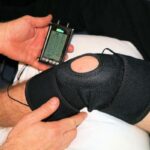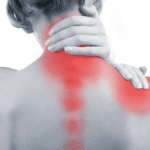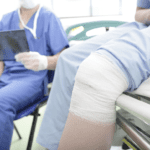Anyone with knee pain wants it to go away. Before resorting to surgery, there are many treatments you can try.
Activity and Exercise
It might seem counter-intuitive, but exercise is important to keep knee cartilage healthy. It helps slow the progression of osteoarthritis and strengthens joints.
Activities in the water can be good exercise since the water relieves some of the pressure and strain on the knees.
Also, strengthening exercises for leg muscles can help protect the knee joints. Strong quadriceps and hamstrings can help provide better knee support.
The exercise might also help you drop a few pounds, which is also good for the knee. The more weight your knees are supporting, the more work they have to do. The extra weight can also increase inflammation throughout the body.
It’s important to allow your knees to rest after any type of injury or over-use. Rest combined with ice, compression, and elevation can help relieve mild knee pain. But don’t stop moving the knee completely since that can lead to stiff joints.
Ice reduces pain, inflammation, and swelling while heat can relax muscles.
Pay Attention to Shoes
The shoes you wear can make a difference in how your knees feel. Good insoles with cushion and arch support can help reduce the stress on your knees. Make sure any shoes support your feet and do not allow you to slip.
Heels aren’t good for the knees and neither are flats. Both change the angle of your feet and don’t provide adequate support. Wear these types of shoes sparingly.
When sitting, try to avoid sitting too low to the ground since it puts strain on the knees to get up.
A brace to stabilize the knee can also help relieve some of the pressure on the knee and allow for proper alignment. There are many different kinds of braces, so make sure to talk with your doctor about which might be best for you.
Non-Surgical Knee Treatments
Non-steroidal anti-inflammatory drugs and other medications can help with some knee pain. Often, these over-the-counter medications can relieve some minor pain. Some of these treatments can happen at home, but injections from a doctor can also help.
Corticosteroid injections directly into the knee joint can help relieve pain and inflammation. Sometimes, they can provide relief for several months.
Hyaluronic acid injections can also improve mobility and ease the pain. The injections contain a thick fluid similar to the natural lubrication produced by your knee.
The medical team at B3 Medical has developed a unique injection-based protocol to treat knee pain. There is no downtime and the pain can go away without surgery. Contact us today for a consultation.



























